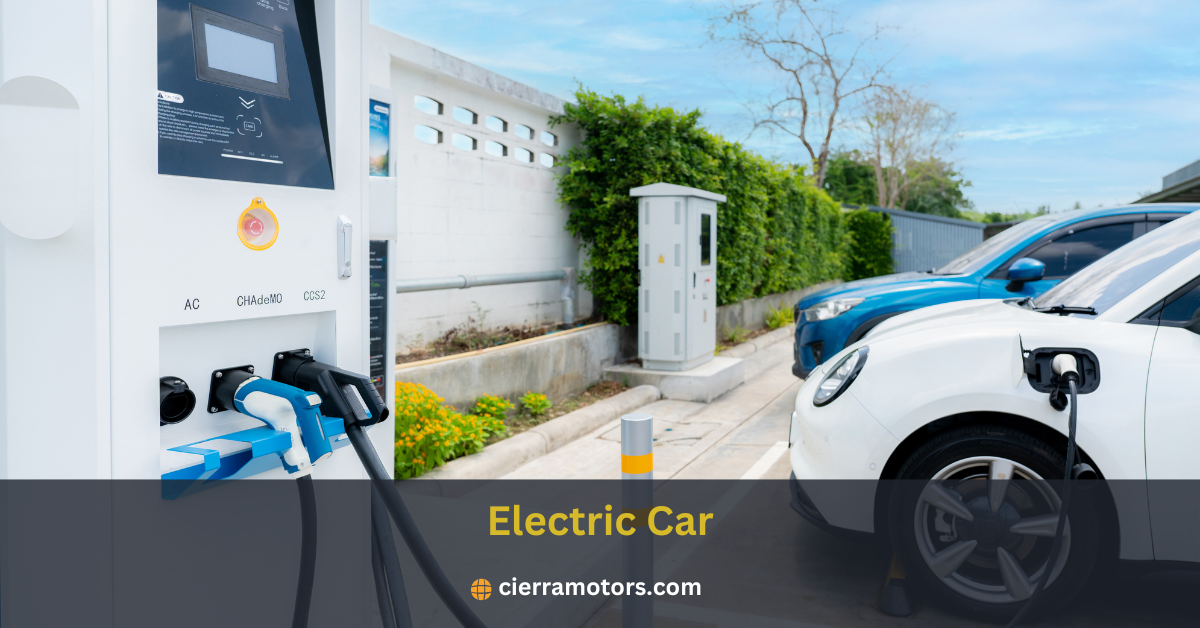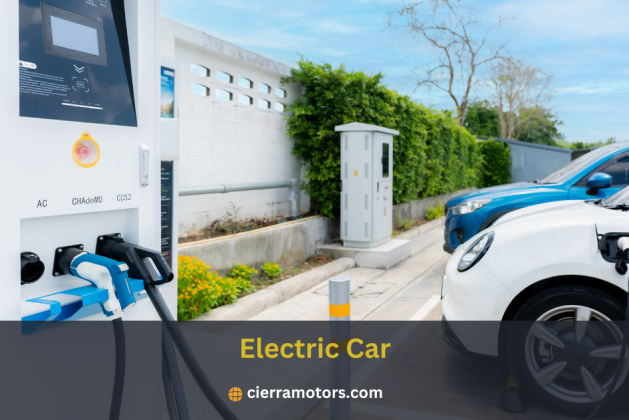Electric cars are no longer a futuristic novelty; they’re a tangible present reality and are here to stay. The clamor to combat climate change and reduce our carbon footprint has accelerated their adoption. With advances in battery technology and infrastructure, the EV market is more robust than ever, offering a real contender to the traditional internal combustion engine (ICE) vehicles.
However, the transition to electric mobility is complex and multifaceted, particularly regarding the financial implications for the consumer. This guide is designed to peel back the layers on the cost of running electric cars versus their petrol counterparts, helping both fledgling and seasoned green motorists understand and compare the real expenses.
Cost Analysis: Electric Car vs. Petrol

Electric Car
Initial Purchase Cost Comparison
At the point of purchase, an electric car typically presents a higher upfront cost due to the complex and expensive lithium-ion batteries. However, it’s paramount to consider the Total Cost of Ownership (TCO) over the vehicle’s lifespan, factoring in fuel and maintenance savings.
When analyzing the TCO, electric cars are often more cost-effective in the long run than traditional gasoline vehicles, thanks to lower fuel costs, reduced maintenance expenses, and potential tax incentives for eco-friendly choices.
Additionally, as technology advances and production scales up, the initial price gap between electric and internal combustion engine vehicles is expected to narrow, making electric cars an increasingly competitive and sustainable option for consumers.
Cost per Mile/Kilometer Breakdown
Driving an electric car is not only cost-efficient due to the lower cost of electricity than petrol, but it also helps reduce maintenance expenses. On average, electric vehicles have fewer moving parts and require less servicing, translating to significant savings over the vehicle’s life. You spend approximately $0.04 to $0.06 per mile or $0.03 to $0.04 per kilometer on electricity, while petrol costs around $0.10 to $0.15 per mile or $0.07 to $0.09 per kilometer, depending on the vehicle’s fuel efficiency.
Maintenance and Servicing Expenses
One of the most compelling financial reasons to choose an electric car is its simpler and typically less frequent maintenance requirements. Electric vehicles (EVs) have fewer moving parts than traditional internal combustion engines, leading to lower chances of part failures and reduced servicing costs. For example, an annual service for an electric car like a Tesla Model 3 could cost around $400. In contrast, a similar service for a gasoline-powered vehicle may cost upwards of $600 due to the complexity of the engine and additional components.
Environmental Impact Considerations
Carbon Footprint Comparison
The environmental argument for electric cars is significant. Even when the electricity to charge them comes from fossil fuels, the well-to-wheel emissions are still lower than those from petrol vehicles. Using renewables further tips the scales in favor of EVs.
In countries like the United States, where approximately 63% of electricity is generated from fossil fuels, driving an electric car results in around half the emissions compared to a gasoline vehicle. In contrast, switching to an electric car in countries like Norway, where renewable energy sources dominate electricity generation, can cut carbon emissions by up to 99%! This significant difference highlights how
Government Incentives for Electric Vehicles
To further promote the widespread adoption of Electric Vehicles (EVs), many governments worldwide offer incentives to encourage their use. These incentives can include tax rebates, grants, discounted charging rates, free parking, and access to carpool lanes, making EV ownership environmentally friendly and financially advantageous for consumers.
For instance, the US federal government offers a tax credit of up to $7,500 for purchasing an EV, and states like California offer additional rebates. In Europe, countries like Norway and Germany provide significant subsidies and tax exemptions for electric car owners.
Factors Influencing Cost Comparison
Several variables can influence how much it costs to run an electric car compared to a petrol car. Understanding these can help consumers make the most accurate assessments.
Energy Prices
The cost of electricity for charging an electric car can significantly fluctuate based on your location and energy consumption patterns. Factors such as local utility rates, time-of-use pricing, and charging infrastructure availability all play a role in determining the overall expenses associated with electric vehicle ownership. Therefore, it is essential to consider these regional variations and charging options to accurately estimate the costs of operating an electric car.
Driving Habits
For individuals who drive long distances often, electric cars may sometimes be less cost-effective due to their current range limitations. However, for most daily commutes, the range of modern electric cars is more than adequate. For instance, a modern electric vehicle like the Tesla Model 3 Long Range can travel over 350 miles on a single charge, making it suitable for most daily driving needs.
Battery Life Considerations
The battery is the priciest component of an electric car, and its durability significantly influences costs. Technological progress in batteries guarantees extended lifespan and decreased replacement expenses. For instance, the Tesla Model 3 boasts a life expectancy of over 300,000 miles, illustrating the advancements in battery longevity and cost efficiency. Considering these factors is crucial when evaluating the overall cost of electric vehicles.
Real-World Examples and Case Studies
Nothing beats real-world data when it comes to making financial decisions. Here, we will highlight case studies and experiences of electric car drivers across various scenarios and lifestyles.
Highlighting Cost Savings Experiences
Drivers transitioning to electric vehicles frequently highlight substantial cost savings as a major benefit. This is particularly significant for individuals who cover extensive daily distances, as the efficiency of electric cars can lead to noticeable reductions in fuel expenses over time.
A study by the University of Michigan found that electric vehicles are an average of 55% cheaper to maintain than gasoline-powered cars over the long term.
Showcase Different Driving Scenarios
From city commuters navigating urban streets to long-distance travelers embarking on cross-country trips, electric cars have emerged as a cost-effective and sustainable transportation choice. For instance, the Tesla Model 3 offers a blend of performance, range, and technology, making it a popular option for eco-conscious drivers seeking a reliable electric vehicle.
Conclusion
In wrapping up this cost comparison, it’s evident that while the initial purchase cost of an electric car can be a hurdle, the running costs are increasingly more attractive, often leading to substantial savings over time. In addition, the environmental perks and the EV proposition become even more compelling.
It’s also important to recognize that the electric vehicle market is evolving rapidly with new technologies, incentives, and infrastructure. Over time, running an electric car will be an eco-conscious choice and a highly economical one.
FAQs
How much is an electric car vs a gas car?
The upfront price tag for an electric car may differ based on the brand and design. Typically, it’s higher than a gasoline car. Yet, looking at long-term expenses, electric vehicles are more cost-effective. They can save you over $1,000 annually on maintenance and fuel alone. For instance, the Nissan Leaf can cost $2,500 less yearly than a similar-sized gas car.
Are electric cars cheaper to maintain?
Yes, according to studies by organizations like the University of Michigan, electric vehicles are significantly cheaper to maintain than gasoline-powered cars, primarily due to their simpler design and fewer moving parts. This also makes repairs less frequent and less expensive for electric cars.
Are there any incentives for buying an electric car?
Many governments worldwide offer incentives such as tax rebates, grants, discounted charging rates, free parking, and access to carpool lanes for purchasing an electric car. These incentives make it financially advantageous for consumers to choose an electric vehicle over a traditional gasoline-powered one.
Do electricity prices affect the cost of operating an electric car?
Yes, energy prices can significantly impact the overall costs of running an electric car. It’s essential to consider regional variations in utility rates, time-of-use pricing, and charging infrastructure availability when estimating the expenses of owning an electric vehicle. In some cases, switching to a renewable energy provider may also be beneficial for even more significant cost savings and environmental impact.
What is the average lifespan of an electric car battery?
The battery life of an electric car can vary depending on several factors, such as driving habits, charging patterns, and weather conditions. However, most modern electric cars have an expected battery life of over 100,000 miles or approximately 8-10 years. With advancements in technology, this lifespan continually increases, making electric vehicles even more cost-effective in the long run.
Are there any additional costs associated with owning an electric car?
Additional costs for owning an electric car may include purchasing and installing a home charging station, regular maintenance fees for the battery, and potentially higher insurance premiums. However, these costs are generally minimal compared to the savings on fuel and maintenance expenses over time. So overall, owning an electric car can be a highly cost-effective choice for budget-conscious individuals or businesses looking to reduce their carbon footprint as well.



Leave a comment